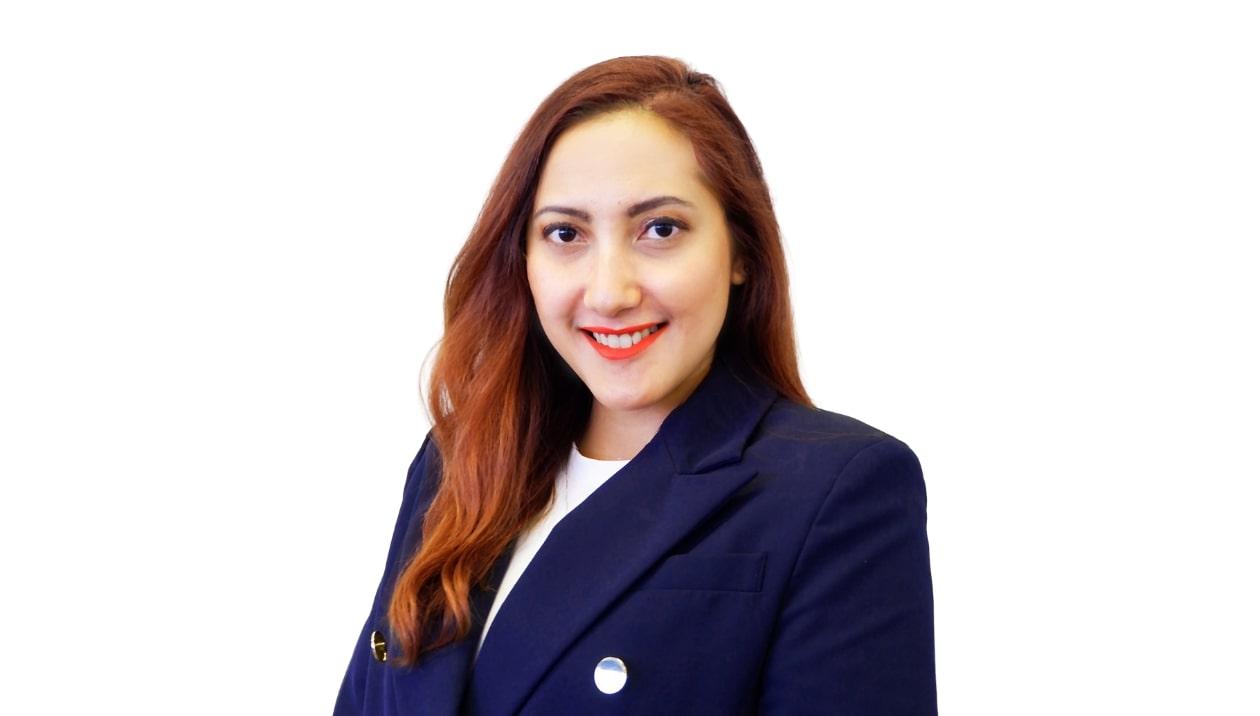
Asia marketers on Google delaying third-party cookies wipe out
share on
Google recently gave advertisers and clients some time to breathe when it recently announced the delay on the phasing out of third-party cookies to mid-2023. The company explained that it has become clear that more time is needed across the ecosystem "to get this right". Third-party cookies were initially planned to be phased out by 2022, and Google also touted earlier this year that its Federated Learning of Cohorts proposal can offer an effective replacement signal for third-party cookies.
Several adtech players told MARKETING-INTERACTIVE last week that instead of waiting for Google to make the next move, there should be active industry and regulatory management beginning now for the next two years. They also reiterated the importance of building first-party data and contextual targeting. This time round, MARKETING-INTERACTIVE spoke to marketers to find out what they make of this news, how it impacts them as a marketer as well as their marketing strategies.
 Some were surprised by Google's decision to delay, given the importance the search giant has placed on meeting Privacy Sandbox change requirements. In recent times, many people thought Google's schedule for removing third-party cookies was fixed in stone, causing a rush and placing enormous pressure on ad tech firms and publishers. However, we’ve seen Google has pushed back on deadlines before and now finds itself in a tough position.
Some were surprised by Google's decision to delay, given the importance the search giant has placed on meeting Privacy Sandbox change requirements. In recent times, many people thought Google's schedule for removing third-party cookies was fixed in stone, causing a rush and placing enormous pressure on ad tech firms and publishers. However, we’ve seen Google has pushed back on deadlines before and now finds itself in a tough position.
At the moment, Google is balancing two concerns: controlling cookies and improving privacy safeguards on its platform, while at the same time, mitigating antitrust concerns, which claim that deleting cookies will harm independent publishers and ad tech platforms. As a result, Google has now decided to give all developers additional time to assess new technologies, receive feedback, to ensure that they fulfil the goals for both privacy and performance. So its decision is a sensible move.
Even if third-party cookies are finally removed from Google according to its revised timeline, it will not be an overnight shift. Instead, cookies will be gradually faded away over the course of three months. In some circumstances, third-party cookies may still be used for another 12 months.
So instead of wondering if and how long third-party cookies will last, marketers should focus their energy on finding alternative solutions that are transparent, compliant, and adaptable across devices and platforms relevant to today's marketing mix.
Cookies have always been an important element of digital marketing since they allow companies to track their customers' digital footprints, habits and behaviours. But what Google is banning are third-party cookies, meaning marketers can still leverage on firs- party cookies and data, for targeting and retargeting campaigns in the future. Although consumers are seeking greater privacy, I believe they will still be ready to provide personal data; the issue is to demonstrate how the data obtained will benefit them and enhance their experience. I also foresee media buying based on cost-per-click and cost-per-action models to grow in popularity since they do not require control over reach and frequency.
Fahroni Arifin, SVP, head of brand management and strategy, Indosat Ooredoo

Due to the current pandemic still being very active and Indonesia is going through another wave of cases, this news comes as a positive sign for marketers as we can prepare based on the market dynamics and environmental changes over the next few months. The delay is a good decision given that we are still far from implementing the technology required to work without cookies. We are working with large adtech companies such as Google, Facebook, and the Unified ID solution to find alternatives in the cookie-less world. There is no perfect solution available and everyone was still trying to figure the best workaround and this delay gives us time to plan our transition properly.
We have invested a lot of time and effort to build our tech stack where from ad trafficking to buying, where we use platforms that have effectively helped to buy audiences in a most precise manner.
As a marketer, my first plan of action is to ensure our communication is reaching our audiences in an optimal manner and that is the same objective when cookies get deprecated.
Given the competitive landscape, it is critical for us to stay connected to our audiences and understand our consumers' needs in this changing landscape. Our marketing strategy would not get impacted as we know our customers that use our MyIM3 apps and their data needs. Our approach would be to find similar audiences who are within the same cohorts of our current consumers, and one such way is the Unified ID which we have been working towards when cookies get deprecated. Our first-party data is a very strong potential base which leads us to find similar audiences and yes, cookies depletion will lead to precise targeting and the impact would be minimal.
Major publishers are figuring out their approach in the new age of media. The earlier bulk of that was driven by cookie and most likely in the future will be done by IDs. Our relationship with them will evolve as the technology takes the next leap, and our agency partners are doing the same. They would need to adapt with the changing technology. Gladly for us, we work with some of the world-class agency partners to drive us into this future.
Sagar Paranjpe, head of marketing strategy and communication, Malaysia Airlines

It is only delaying the inevitable. Yes it gives us time, especially in a pandemic hit world, but third-party cookies is a shortcut to the hard work that we need to put in, in order to understand our consumers better and build stronger relationships with the right businesses. Had it not been for the pandemic, we would have more relevant data about our consumers and hence targeting them with our own cookies would have been a good starting point.
We would have also had better relationships with publishers and media because we would still be relevant to their audiences. But pandemic hit industries such as aviation, hospitality and tourism aren’t exactly top of mind, and this delay is beneficial. We now have more time to work on the above, as well as devise other strategies and implement them.
We are putting some measures in place, not just as Malaysia Airlines, but as Malaysia Aviation Group. Whilst this will never wipe out our dependencies on external parties, we’re getting our house in order. The notion of the deprecation of third-party cookies itself has already impacted our marketing strategy, let alone when it actually happens in the future.
In the long run, it will certainly be better because we will be dependent on ourselves and on the partnerships and associations that we build with allied services, and many media and publishers.
In the long run, these relationships with publishers as well as adtech and media agencies will be more beneficial to brands such as Malaysia Airlines. Tools such as third-party cookies was only delaying the inevitable - better relationships with publishers and media that have a more tuned-in audience and therefore the ability to create a quality connection with the consumers through more relevant content.
With third party cookies being deprecated, it will create is a huge rift between the haves and the have nots. Small businesses will die a quick death because they don’t have a cheaper way to spread the word. Publishers and media won’t be interested in every little café or dollar-shave product out there. So the onus lies on publishers, media and adtech companies to subsidise their services to the little guy. Majority of the businesses are small to medium-sized, if they die out, the consumer loses because large industries will create cartels to maintain a (higher) pricing standard and the now post third party cookie “private” consumer, will be none the wiser.

The notion to delay third-party cookies is an interesting one, especially because Google’s initial timeline was to stop support of third-party cookies by early 2022. Delaying it by almost a full two years until the end of 2023 does come as a surprise. I’m sure there is a deeper business reason behind it, but I’m not here to speculate on it. For marketers, especially in Asia, where Android is the primary smartphone system at over 80%, this is good news (for now). It means that we will still be able to identify our customers and customise and tailor ads to suit and meet their needs.
The delay by Google allows us more time to prepare for a world without cookies, especially in APAC since Android is the dominant platform. Cookies have been a big part of modern digital marketing. On 3 May 2021, when Apple announced iOS 14.5, and dropped a huge change to their privacy policy, it changed the way marketers identified and communicated with consumers overnight. Since then our marketers in countries where iOS is more dominant, such as Singapore, have been scrambling, and are still scrambling to find new ways to adjust our digital media buys – specifically to Apple users. Inevitably, we knew that Google would also follow suit. However, this delay to late 2023 gives us some breathing space to find a solution that works, master it, and implement it when the Google action happens.
From a broader perspective, it doesn’t change the way in which we formulate and build our marketing campaigns. McDonald’s always starts with consumer insights when it comes to building marketing campaigns. We focus on first understanding what makes a particular target audience tick, and then build the campaign around that. If we continue to focus on understanding the consumer first, I don’t think we will have any major roadblocks with the removal of cookies.
For example, 10 years ago, laundry detergent brands would place TV ads on daytime drama programs that run at 3 pm. Why? Because the main target audience and decision-maker for buying laundry detergents were housewives that would have afternoons free while the kids were either asleep or at tuition, and they had the time to enjoy me-time by watching a little telenovela. Fast forward to today, in today’s digital environment, without cookies, how would you know where to reach a housewife that still makes the decision on which laundry detergent to buy, but doesn’t watch daytime drama anymore?
Well, by understanding your target audience, you could probably still reach them through Korean drama streaming platforms, or place an ad on cooking videos on YouTube, or by sponsoring a mommy influencer that is popular with the group.
If you truly spend the time to understand your consumer and put them first, you won’t have to rely on cookies to craft your marketing or media strategy.
Facebook and Google will continue to be our biggest digital partners, and I’m sure there will be new marketing solutions to help address the question – “How can I reach my target audience?” Cookies helped with the execution of our media plans over the past five years, but as privacy becomes top-of-mind with consumers in todays landscape, and that level of granularity goes away, marketers will still need to sell, and we will evolve to find new and interesting ways to do it. As for the agencies, the demand for good consumer insights around media will be even higher, and a focus on qualitative analysis will make a comeback versus the current quantitative (big data) based analysis.
Georgina Koh, digital and content director, Singapore Tourism Board

As the current landscape still relies heavily on third-party cookies to help enhance audience segmentation and refine targeting strategies, the delay in depreciation offers advantages, such as affording advertisers and players within the martech ecosystem ample time to pivot and/or make concessions to better prepare to be less dependent on third-party cookies.
Our current marketing strategy takes into account how destination marketing has evolved over the years, and where our various initiatives and activities are within the consumer journey. In today’s world where consumers have greater control over what information they receive, the delay in depreciation gives us the opportunity to create a more robust data strategy to better leverage on existing first- and second-party data, review our priorities on data types and targeting tactics, as well as evolve our current tech stacks to cater to the shift.
It also allows us to have a deeper discussion with our technology and agency partners, as well as Google, to better calibrate our short to mid-term data and advertising strategies, while we prepare for a future where the entire martech ecosystem pivots from third party cookies.
This does not impact our relationships with publishers or even media and adtech agencies. If anything, it will grow and deepen relationships further as the industry collaborates to uncover opportunities and resolve existing roadblocks to ensure fluid execution as we all innovate and evolve to adapt to the changes in the marketing landscape.
Kenny Wong, CMO, UEM Sunrise

Third-party cookies provide data about a person’s surfing habits/shopping interests, including the history of online purchases, and websites visited among others. Brands today use these data for advertising and marketing, specifically for targeting the right audience, thereby getting more effectiveness out of their advertising dollars. Google’s decision to phase out third-party cookies will impact the brands’ ability to do so going forward (all else being equal). This delay will undoubtedly provide some reprieve to allow marketers to find alternatives to this end.
Globally, initiatives to protect user privacy online have been in the spotlight and obviously, this delay ensures that the right decisions are made to keep consumer data secure while balancing the commercial needs of brands and advertisers. Marketing strategies and initiatives have, in recent times, tend to rely heavily on cookies as a form of "proxy" to identify types of customers to target. So this will have a significant impact on how brands monitor, target, and engage with customers.
I think this was bound to happen anyway in view of the widespread concerns on data privacy protection. Notably, Safari and Firefox have already phased out third-party cookies so there are options to explore.
Blocking third-party cookies will happen sooner or later, and marketers (and importantly their agencies) are already thinking about other ways to track advertising effectiveness and develop different solutions. The “death” of third-party cookies could then create new challenges and new ways of marketing for brands in general. We just have to be more alert to changing customer needs and to be ever vigilant at listening, learning and responding to these.
If a brand is engaging enough and listens intently to what customers are telling them, they will continue to be able to market effectively.
This delay allows more time for marketers to adapt; it is probably too early to tell – but the versatile nature of marketers, agencies and publishers alike will surely mean that they will find ways to continue co-existing. While the methodologies and approaches may change, the ecosystem will remain intact
Donna Pratamawansyah, head of premium marketing communications, XL Prioritas
We use Google display and video 360 so it will have a big impact. We will have to figure out another way of targeting our audiences through messaging, such as news channels or even in-game ads, for example. There are plenty of advertising formats that we have not explored so I think with the deprecation of third-party cookies, we will have to be more creative. We will still carry on with what we are doing right now but will try to find alternatives in the meantime.
I will trial a platform that we have not engaged before and see if the result is good. Perhaps that can be a replacement for when third-party cookies are no longer available. This is to ensure we are ready when third-party cookies totally disappear. We are still pushing our agencies to build up the first-party data but we do already have a pool of data about our customers so once the third-party cookies are gone, we can still use that to remarket.
I think agencies have to learn something new and give us a backup plan when the third-party cookies are being phased out. We have to move into new territories and since agencies usually learn new things before we as brands do, they will know whether it works. Hence, we are definitely looking forward to having an agency that is more knowledgeable than us in this aspect.
share on
Free newsletter
Get the daily lowdown on Asia's top marketing stories.
We break down the big and messy topics of the day so you're updated on the most important developments in Asia's marketing development – for free.
subscribe now open in new window
